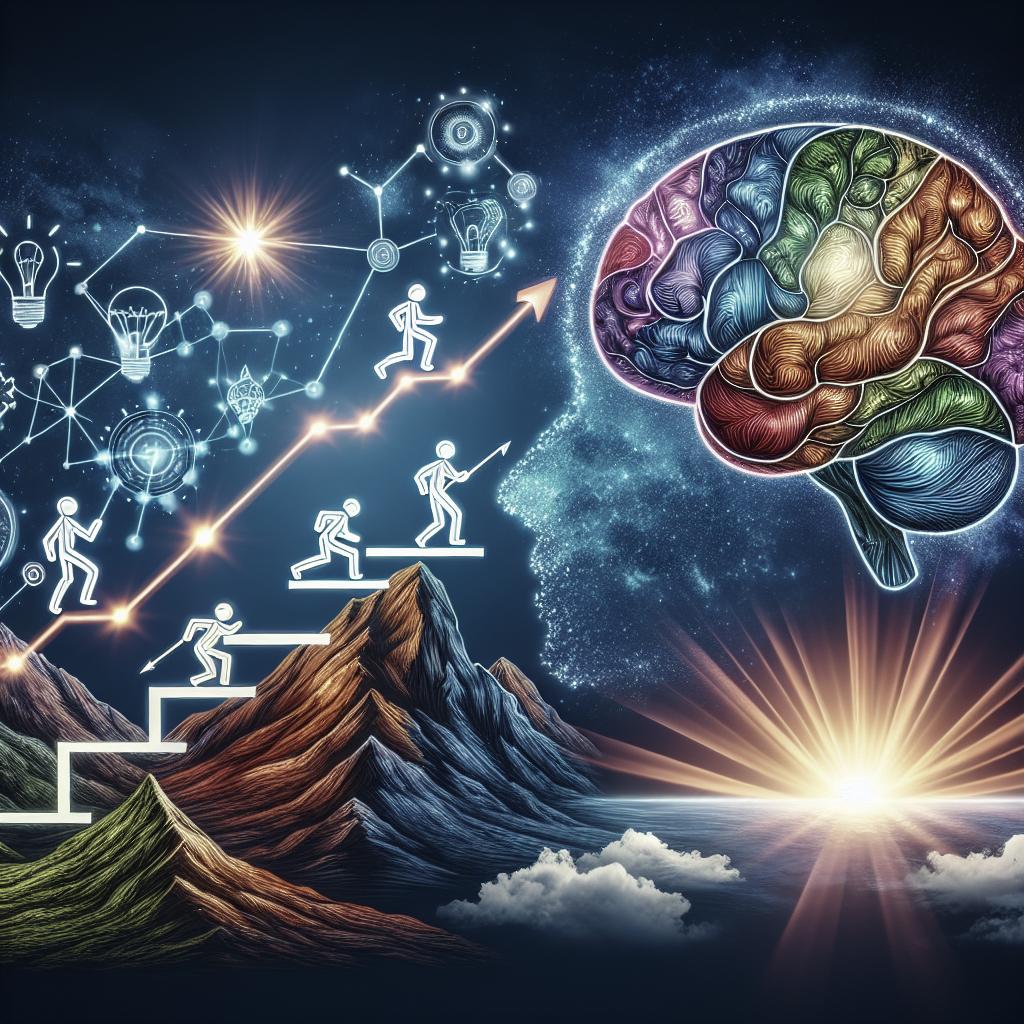How Does Mindset Affect Learning Understanding the impact of mindset on learning is crucial in optimally harnessing one’s potential. This blog post delves into how different mindsets, particularly the growth mindset, influence the way individuals approach learning. Through various subheadings, we explore why a growth mindset is preferable, the effect of a facilitator’s mindset on students, and the tangible difference a growth mindset makes. Additionally, we look into strategies for changing one’s perspective on learning and the important takeaways from adopting positive mindsets. By the end, a summary table will encapsulate the key points discussed.
Why You Should Prefer a Growth Mindset
A growth mindset rests on the belief that abilities and intelligence can be developed through dedication and hard work. This viewpoint creates a passion for learning and resilience essential for great accomplishments. Opposed to a fixed mindset, where individuals see their qualities as static traits, a growth mindset fosters continuous improvement. Students and professionals with a growth mindset are more likely to embrace challenges, persevere through setbacks, and view effort as the path to mastery. They tend to achieve more because they worry less about looking smart and put more energy into learning. This ongoing improvement contrasts sharply with those who believe their abilities are limited and unchangeable, who may shy away from challenges to avoid failure. Moreover, this mindset encourages a love for learning, which is essential in our ever-evolving world. The willingness to adapt and acquire new skills can lead to innovative thinking and problem-solving abilities, drivers of success in personal and professional realms.
How a Facilitator’s Mindset Impacts Learning
Teachers and facilitators play a significant role in shaping the mindsets of their learners. When educators possess a growth mindset, they instill similar values in their students, fostering a culture of perseverance and resilience. A facilitator’s positive outlook on growth can inspire students to view challenges as opportunities, not as threats. Additionally, a facilitator’s approach to feedback significantly impacts learning. Those who emphasize effort and strategies over innate ability contribute to a nurturing environment where mistakes become part of the learning process. This kind of feedback encourages students to take risks and explore their potential fully, laying a strong foundation for lifelong learning. In contrast, facilitators with a fixed mindset may inadvertently propagate a limiting belief system, emphasizing inherent talent over development. This can lead students to avoid challenges, fearing that failure would reflect poorly on their inherent abilities rather than their lack of effort or strategy.
What a Difference a Growth Mindset Makes!
The impact of adopting a growth mindset is transformative. Research by psychologist Carol Dweck, who coined the term, shows that individuals possessing a growth mindset demonstrate higher academic achievements and greater emotional well-being. They are more likely to pursue learning opportunities and view difficulties as hurdles to be overcome. A growth mindset also fosters greater creativity, as individuals are more willing to take risks and experiment with new ideas. This innovative thinking propels progress and development both in educational settings and the workplace. Employees and students alike see failures as informative experiences that contribute to future success. Moreover, teams and organizations that embrace growth mindsets develop a culture of continuous improvement, driving higher performance and employee satisfaction. These environments encourage collaboration and the sharing of knowledge, which benefits all members involved.
Changing One’s Own Mind About Learning
Shifting from a fixed mindset to a growth mindset involves intentional changes in thought patterns and behaviors. One effective strategy includes reflecting on the language used when facing challenges. Instead of saying “I can’t do this,” embracing thoughts like “I can’t do this yet” opens up possibilities for growth and learning. Setting incremental goals can also reinforce a growth mindset. By breaking down larger tasks into manageable pieces, individuals can celebrate small victories that build confidence and motivation. This approach makes ambitious objectives feel attainable and fosters a sustained enthusiasm for learning. Finally, seeking feedback and actively reflecting on it aids in personal development. Constructive criticism should be viewed as valuable information rather than a personal attack. By focusing on areas for improvement rather than shortcomings, individuals can continuously enhance their skills and knowledge.
Parting Words
Growth Mindsets
Cultivating a growth mindset unlocks the potential for limitless learning and achievement. This mindset helps individuals embrace challenges, persist in the face of setbacks, and see effort as the key to development. As Carol Dweck’s research indicates, the benefits of a growth mindset extend beyond academic performance, promoting overall well-being and creativity.
Outward Mindsets
An outward-focused mindset emphasizes the impact of our attitudes and behaviors on others. In educational settings, facilitators with an outward mindset create environments conducive to growth by encouraging resilience and innovation. Similarly, individuals benefiting from such environments often take these principles into their personal and professional lives.
Do you believe a person’s qualities are gifts, unchanging and steadfast? Or do you think we all carry within us an opportunity for qualities to change, grow and improve?
The fundamental question we must ask ourselves hinges on our belief in human potential. Embracing the notion that our qualities can evolve opens up a world of continuous improvement and lifelong learning. By challenging the belief that abilities are static, we pave the way for growth, increased creativity, and substantial personal and professional development. Summary of main points “`html
| Aspect | Details |
|---|---|
| Growth Mindset Preference | Encourages learning, resilience, innovation and promotes continuous improvement. |
| Facilitator’s Mindset | Influences learner’s mindset; growth mindset facilitators inspire perseverance and risk-taking. |
| Impact of Growth Mindset | Leads to higher academic achievements, greater creativity, and emotional well-being. |
| Changing Perspective | Shifting to a growth mindset involves changing language, setting incremental goals, and seeking feedback. |
| Key Takeaway | Believing in the potential for growth unlocks continuous improvement and lifelong learning. |
“` This synopsis of how mindset affects learning underscores the profound impact of embracing growth and outward-focused mindsets. Adopting these perspectives fosters a richer, more resilient approach to both personal and professional development.


